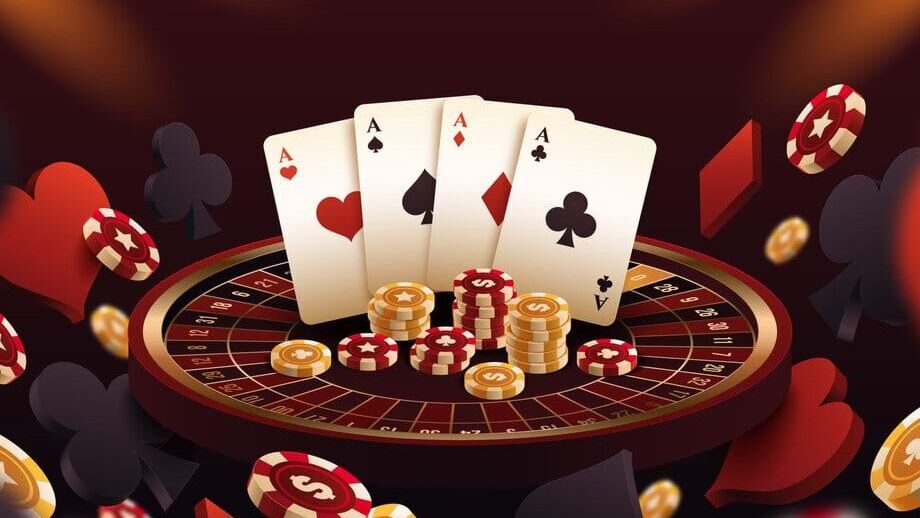
Casino entertainment have long been a fascinating form of entertainment, drawing millions of players from diverse cultures around the globe. From the opulent casinos of Vegas to the busy gambling halls of the Cotai Strip, these games serve as a bridge that connects people across a variety of backgrounds. The allure of fortune, strategy, and risk entices not only those seeking to win money but also those looking for a sense of community.
The influence of casino games extends far beyond the gaming floor. They often embody the social norms and traditions of the cultures in which they prosper. Games such as Texas hold ’em, blackjack, and the wheel game have woven themselves into the tapestry of popular culture, influencing everything from cinema to style. As we explore this fascinating intersection of luck and culture, we can gain insights into how gambling games shape and are affected by the world around us.
Historical Development of Casino Activities
The origins of casino games can be followed back to old cultures, where betting in various forms was extensively performed. In China, around 2300 BC, a form of luck game known as Keno was popular, while in ancient Rome, soldiers would regularly gamble on the outcomes of their matches. The idea of using chance for entertainment and income developed over the years, leading to the establishment of more formal activities. By the late Middle Ages, gambling houses initiated to appear in European nations, notably in Italy, which brought forth early incarnations of well-liked games still played today.
As betting gained recognition in European regions, the 17th and 18th centuries saw the appearance of casinos as specialized venues for gaming. The first official gambling house, the Ridotto, was set up in Venice in sixteen thirty-eight, providing activities like Baccarat and Faro. This era marked a significant turning point, as gaming venues began to attract not just the wealthy but also the burgeoning middle-income class. The sophistication of games grew, leading to the introduction of new rules and variations that enhanced the gaming experience.
In the 19th century, the era of industrialization and transformations in social norms additionally transformed the environment of gaming games. The introduction of roulette and modern slot machines pulled in a more diverse audience, and casinos became seen as legitimate recreation. This period witnessed the international spread of gaming, as gambling houses spread from European nations to the Western Hemisphere, culminating in the establishment of the iconic Las Vegas Strip in the twentieth century. The progress of gaming games has continued into the current era, including new technologies and digital sites, allowing them accessible to a worldwide market.
### Cultural Significance within Various Cultures
Gambling games have profound cultural value in numerous communities throughout the planet. สล็อตเว็บตรง Places like Las Vegas, the very essence of the urban landscape is woven around gaming venues, where gambling is not just a recreational activity but a central aspect of leisure and community life. The bright lights and dynamic atmosphere attract countless individuals, showcasing how games of chance can impact local economical structures and cultural identities. This environment transforms the notion of leisure into an enriching event that affects apparel, sound, and even cinema.
Conversely, some cultures treat wagering with an air of caution, seeing it through the lens of ethical considerations and heritage. For instance, in various Asian societies, games like Mahjongg and Pai Gow are full of history and possess significant social meanings. These games are often played during gatherings and celebrations, fostering collective connections and strengthening familial ties. The act of participating in these games goes beyond mere amusement, reflecting ethics such as deference to seniors and the importance of communal fun.
At the same time, in continental countries such as Monaco and the Italian Peninsula, games of chance serve as symbols of opulence and sophistication. The stylish atmosphere of these establishments attracts both tourists and native inhabitants, upholding a sense of prestige and rarity. The art of Texas Hold’em and the strategic features of games like baccarat are esteemed, influencing interpersonal interactions and cultivating an appeal that fascinates a diverse audience. This underscores how casino games can concurrently mirror and shape societal views towards hazard, benefit, and community interaction.
Financial Influence and Tourism
Casino games play a crucial role in the financial context of many regions, particularly those that rely heavily on tourism. The revenue produced from gambling establishments fuels local financial systems, creating employment opportunities not only within the casinos themselves but also in connected industries such as hotel management, restaurant services, and entertainment. This surge of tourists, drawn by the attraction of gambling and the overall gaming environment, stimulates expenditure across multiple businesses, contributing to the economic vitality of the area.
The presence of casinos often leads to the construction of facilities, including lodging, public transit, and leisure amenities. These improvements are essential in improving the overall visitor satisfaction, making locations more attractive to tourists. Additionally, many casinos contribute in local communities through sponsorship of events and philanthropic initiatives, further embedding themselves into the community structure of the locality. Such contribution not only supports economic growth but also cultivates a positive reputation of the gambling sector.
In addition, the worldwide appeal of casino games drives competitive tourism, with locations vying to attract players from around the world. Iconic destinations like Las Vegas and Macau have become identifiable with casino culture, drawing millions annually. This competitive edge encourages creativity and variety within the gambling sector, influencing trends in entertainment and accommodation that extend beyond their limits. The consequences of this tourism extend far, impacting local economies and cultural interactions on a global scale.